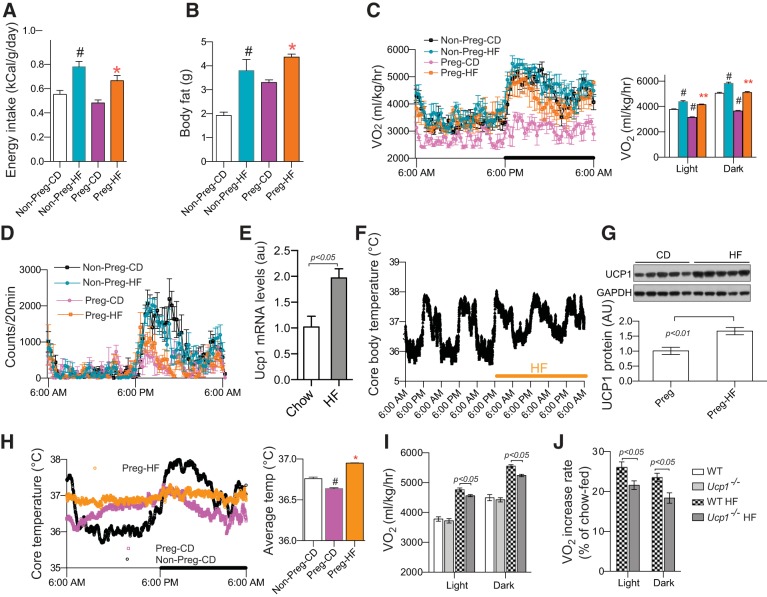Fig. 4.
Maternal uncoupling protein-1 (UCP1) deficiency attenuated high-fat (HF) feeding-increased energy expenditure in pregnant mice. Female C57BL/6 and Ucp1−/− mice were fed HF diet 1 mo before and during pregnancy (A–D, G–J, n = 10–12). HF feeding significantly increased energy intake (A), body fat (B), O2 consumption (V̇o2; C) but showed no effect on activity (D) at embryonic day (E)18.5. Two-day HF feeding increased UCP1 expression in interscapular brown adipose tissue (iBAT; E) and core body temperature (F) of nonpregnant C57BL/6 mice (n = 5). Significantly elevated UCP1 protein (G) core body temperatures (H) were observed in HF-fed pregnant mice at E18.5. However, HF-induced increase in V̇o2 rates were attenuated in Ucp1−/− dams at E18.5 (I and J). Nonpreg-CD, chow-fed nonpregnant mice; Nonpreg-HF, HF-fed nonpregnant mice; Preg-CD, chow-fed pregnant mice; Preg-HF, HF-fed pregnant mice. Data are presented as means ± SE. #P < 0.05 vs. Nonpreg-CD; *P < 0.05, **P < 0.01 vs. Preg-CD.

